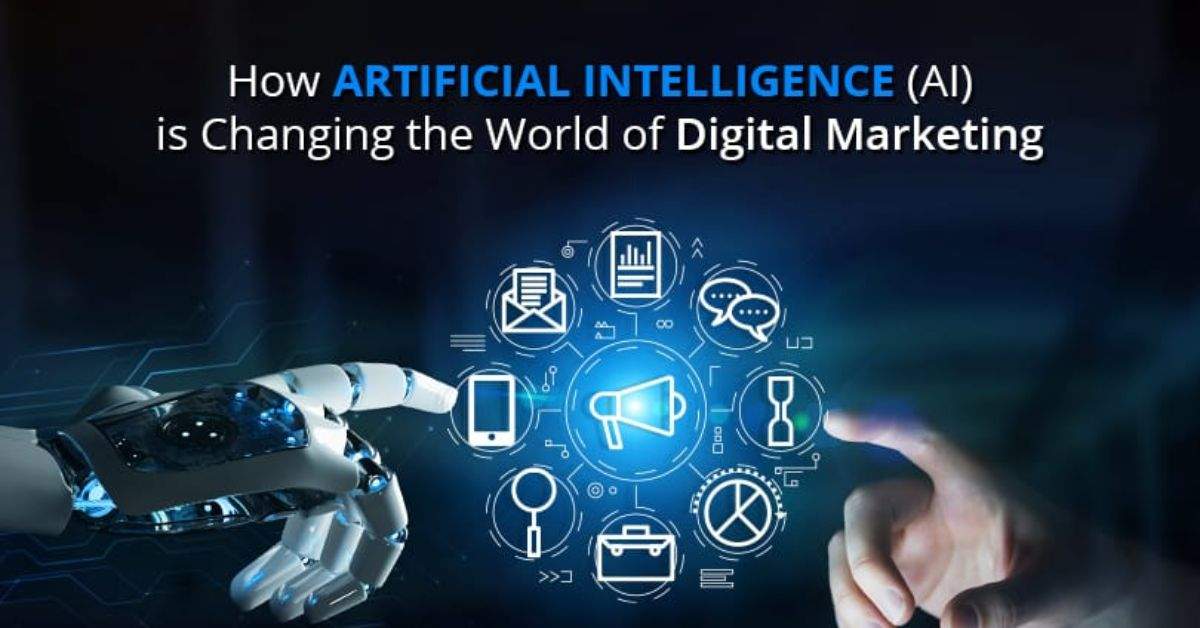
How Is Ai Changing Digital Marketing
Artificial Intelligence (AI) is transforming digital marketing in numerous ways. AI algorithms and tools can help businesses automate tasks, analyze data, and improve customer experience, which ultimately leads to better marketing results. In this article, we will explore some of the ways that AI is changing digital marketing and what businesses can do to stay ahead of the curve.
Personalization
Personalization has become a crucial aspect of digital marketing, as customers expect personalized experiences that cater to their individual preferences and needs. AI algorithms can help businesses analyze customer data and create personalized marketing messages that are tailored to each individual.
For example, an AI-powered recommendation engine can analyze a customer’s purchase history, browsing behavior, and other data to recommend products or services that they are likely to be interested in. Additionally, chatbots powered by AI can provide personalized recommendations and support to customers in real-time.
Chatbots
Chatbots are another way that AI is changing digital marketing. Chatbots can be used to provide customers with quick and efficient support, answer common questions, and even complete transactions.
AI-powered chatbots can provide a more personalized experience by analyzing customer data and using natural language processing to understand customer inquiries. This technology can also be used to automate customer service, which can save businesses time and resources while providing better customer experiences.
Predictive Analytics
Predictive analytics is another area where AI is changing digital marketing. Predictive analytics involves analyzing customer data to predict future behaviors and trends. By using AI algorithms to analyze large amounts of data, businesses can gain insights into customer behavior and preferences that can inform marketing strategies.
For example, predictive analytics can be used to identify customers who are most likely to make a purchase, allowing businesses to create targeted marketing campaigns that are more likely to be successful. Additionally, predictive analytics can be used to identify potential issues before they arise, allowing businesses to proactively address them and provide better customer experiences.
Image and Video Recognition
AI-powered image and video recognition technology can help businesses analyze visual content to gain insights into customer behavior and preferences. This technology can be used to analyze social media posts, product reviews, and other types of user-generated content.
By analyzing visual content, businesses can gain insights into how their products are being used, what customers like and dislike about them, and what types of content are most engaging. Additionally, image and video recognition technology can be used to create more targeted marketing campaigns that are based on customer preferences and behaviors.
Content Creation
AI-powered content creation tools are changing the way that businesses create and distribute content. These tools can be used to create everything from social media posts and blog articles to email newsletters and product descriptions.
By using AI-powered content creation tools, businesses can create high-quality content at scale, without the need for human writers. Additionally, AI algorithms can analyze content performance data to identify which types of content are most engaging, which can inform future content creation strategies.
Voice Search Optimization
As voice assistants like Alexa and Google Assistant become more prevalent, optimizing content for voice search is becoming increasingly important. Voice search optimization involves optimizing website content and other digital assets for natural language queries, rather than traditional keyword-based searches.
To optimize for voice search, businesses should focus on creating content that answers common questions related to their products or services, using natural language and long-tail keywords. Additionally, ensuring that website content is mobile-friendly and loads quickly is essential, as most voice searches are performed on mobile devices.
Conclusion
The impact of AI on digital marketing is undeniable, and it is changing the way businesses interact with their customers. AI’s ability to automate tasks, analyze data, and personalize customer experiences has transformed the digital marketing landscape. Businesses that leverage AI in their digital marketing strategies can gain a competitive advantage by delivering highly personalized experiences to their customers, optimizing their marketing campaigns, and improving customer engagement and loyalty. As AI technology continues to evolve, it will undoubtedly play an even more significant role in the future of digital marketing.
Therefore, it is crucial for businesses to stay up-to-date with the latest AI trends and technologies and incorporate them into their digital marketing strategies to stay ahead of the curve. By doing so, they can increase their ROI, improve customer satisfaction, and stay ahead of the competition in the digital marketplace.


















